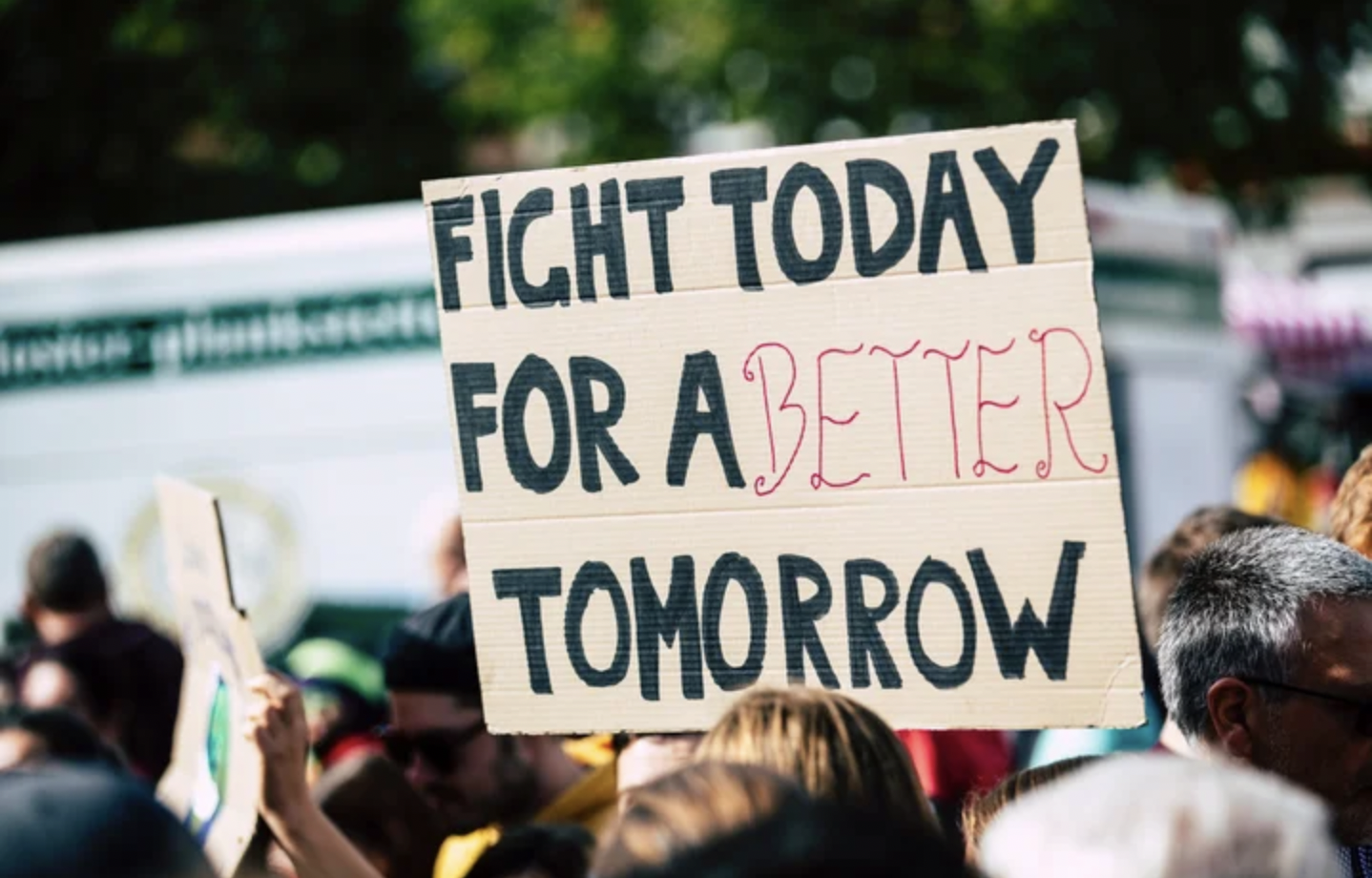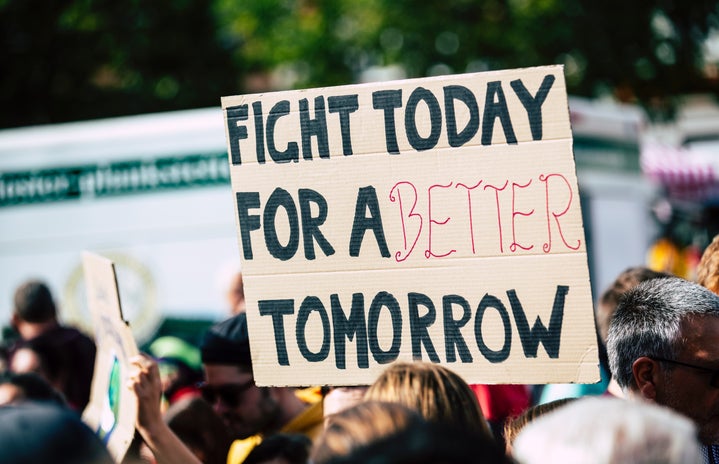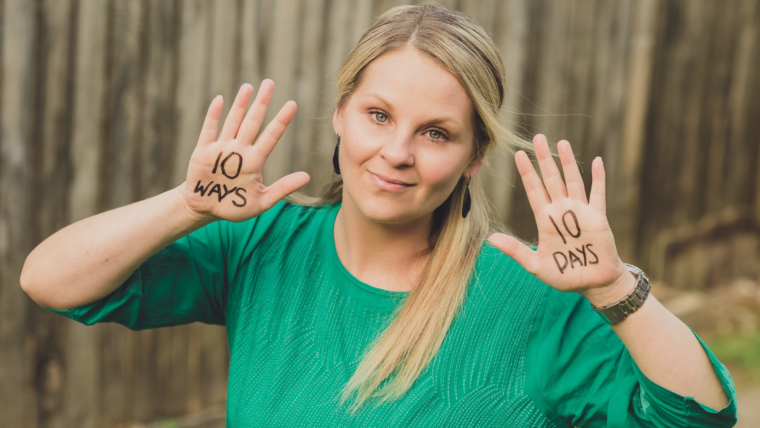

Advocating for a cause you believe in can be one of the most rewarding feelings of all time. But while making a difference in your community can be exciting and affirming, it can also feel draining and lead to activism fatigue, a type of burnout that involves emotional, mental, and physical exhaustion when working toward a particular goal. The intense nature of activism can lead people to feel stressed, exhausted, and overwhelmed, which can have a long-term impact on physical, emotional, and mental health. Whether you’ve been an activist for years or you’re beginning your activism journey for the first time, here are four general types of activism fatigue and tips for how to navigate each one.
NEWS FATIGUE
If you’re an activist, it can feel impossible to peel yourself away from the news cycle. According to a 2020 study conducted by Pew Research Center, two-thirds of Americans deal with news fatigue, and as a writer, I can relate to the feeling. As an activist, it’s important to reflect on your relationship with the news, honor your personal limits, set boundaries accordingly, and recognize if and when your attachment to the news cycle might be unhealthy.
One solution for combating news fatigue: unplug when you start to feel overwhelmed. Between alarming headlines and constant updates, try to be mindful of what you’re consuming and when. You may consider creating parameters for yourself; for example, only checking the news at certain times of the day, or adhering to a personal “news curfew” so that you don’t end up doomscrolling late at night. It’s great to stay up-to-date on causes you care about, but for activism to be sustainable long-term, navigating your relationship with the news cycle is key.
ACTION FATIGUE
There are a variety of ways to practice activism these days, from attending rallies and protests to calling your senators, signing petitions, donating to organizations, and more. While it’s great that there are many ways to get involved with causes you care about, you may be prone to action fatigue, AKA feeling worn out from the actual activities you’re taking part in! Between the marches, community meetings, on-the-ground campaigning, and more, be mindful of how you are spending your time.
If you’re feeling physically, mentally, and emotionally tired right now, try taking a step back and asking yourself: can my time, resources, and energy be channeled in other ways? For example, it may help to devote your time and efforts to a few key events or causes rather than spreading yourself thin with a jam-packed schedule. Remember, activism is a marathon, not a sprint, so if you’re feeling fatigued from taking action 24/7, know that it might be a good time to step back and recharge.
SOCIAL MEDIA FATIGUE
Constantly consuming information across Instagram, TikTok, Twitter, Facebook, and other social media platforms can be extremely draining, especially for activists who are consistently plugged into the news cycle. Whether you’re advocating for reproductive rights, environmental justice, or following a large-scale movement like Black Lives Matter, it’s important to be mindful of your social media use and recognize if you need to take a break from your multiple feeds.
Personally, I’m a fan of turning off in-app notifications and setting my phone on “do not disturb” after work hours. I also recommend using the “mute” and “unfollow” buttons often — the features are there for a reason, so protect your virtual boundaries! Just like you would with an account that makes you feel less-than-great about yourself, don’t be afraid to hide accounts, posts, or muting specific keywords from your timeline that feel damaging. Finally, remember to be mindful of your safety on social media, from who you follow to what you post to your own feed.
CONVERSATION FATIGUE
During your activist journey, you will inevitably encounter people who share different beliefs than you about particular topics. This can be exhausting, especially when those people are close friends or family members — it can feel like you are always engaging in critical discourse or having to educate others about the topics you care about. At times, these conversations can be stressful and turn into heated debates or arguments over opposing opinions.
Know that while it’s common to feel conversation fatigue, engaging with topics related to your activism is crucial for long-term change. The next time you’re approaching a critical conversation, try choosing a time when you and the other person are relaxed and in a neutral or open state of mind. Rather than using accusatory tones in your interactions, try keeping the conversation lighter and more relaxed, if possible. One pro tip that has helped me in my activist journey is releasing control over the outcome of a conversation; you may not always be able to change someone’s mind about a topic, but you can contribute to calm, open-minded discourse that might enable them to see your particular issue in a new light.
If there’s anything I’ve learned from standing up for causes I care about, it’s that activism fatigue is real, and can be damaging to your mental health if it goes unchecked. This is especially true for BIPOC activists and folks who are consistently advocating for folks from marginalized communities. Whether you’ve been an activist for many years or you’re starting your activist journey today, remember to always check in on yourself and others who are fighting for change. Creating positive change in the world is a marathon, not a sprint, and the world needs you to be a healthy, energized version of yourself so that we can collectively work toward a better future for all.






